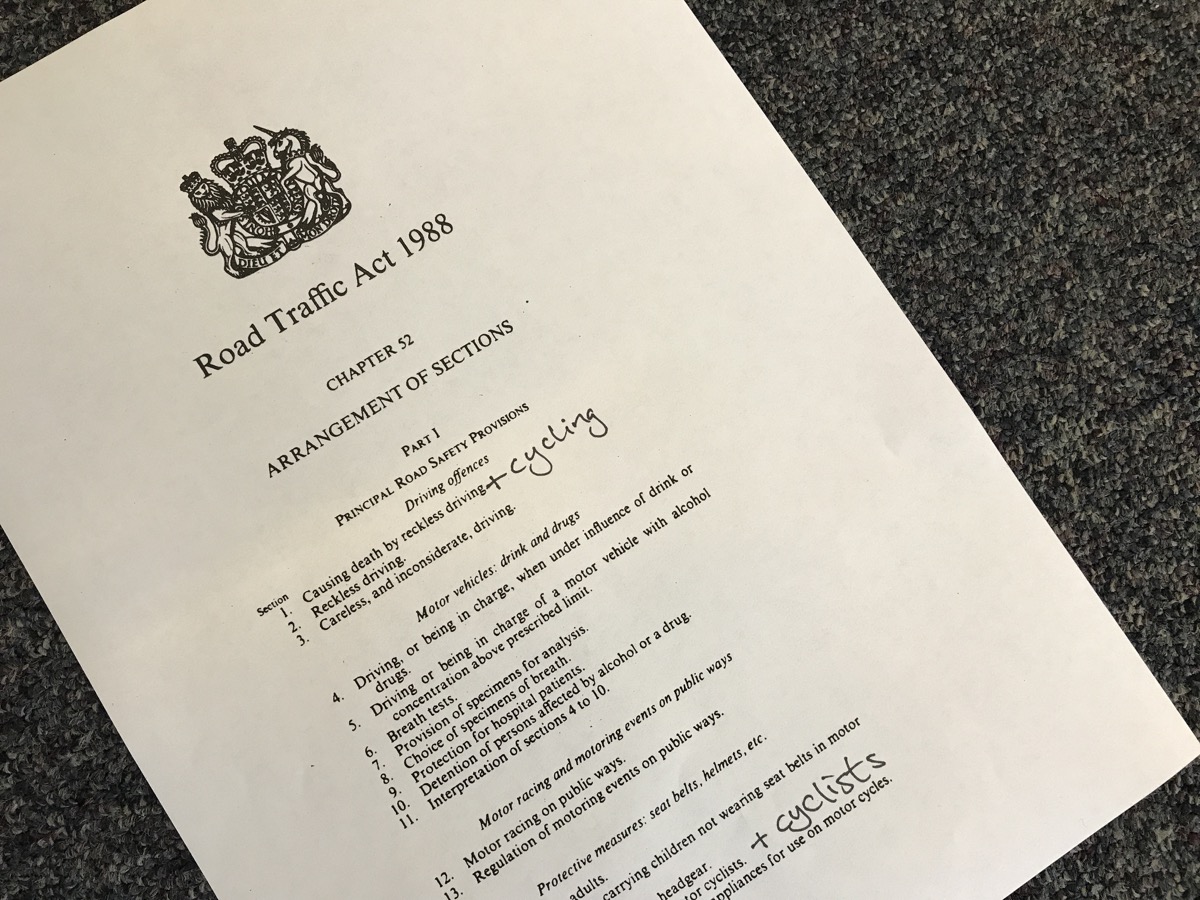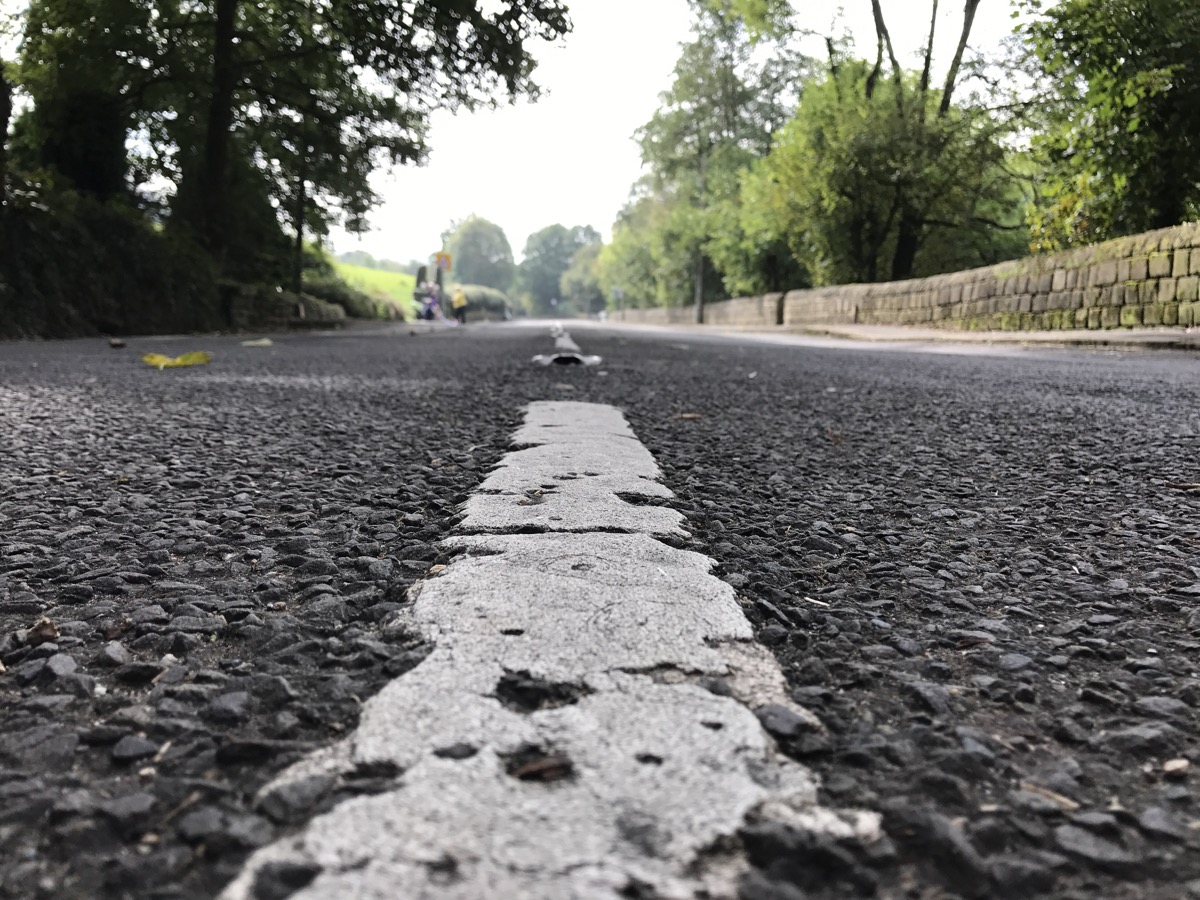Here at Singletrack we’ve been following Government policy on cycling because most of us don’t just ride off road – we ride on roads to get to trails, work, the shops – and our loved ones do the same. Bez has written extensively on road design and road traffic law, and Hannah recently criticised the Government’s lack of action on safer road design.
If you care about this sort of thing – and if you ride a bike or know anyone who does, why wouldn’t you? – then Cycling UK’s latest campaign is surely going to be of interest. Read on to find out more, and how you can take action…

Cycling UK has today launched a campaign to persuade the Government to undertake an urgent review of road traffic laws. The charity believes an increasing number of families whose loved ones have been killed or seriously injured on Britain’s roads are suffering injustices, but significant improvements could be made by addressing three key areas:
- Simplifying and improving the legal definitions of unsafe driving behaviour
- Increasing the use of driving disqualifications and closing the ‘exceptional hardship’ loophole
- Increasing the current six month maximum prison sentence for drivers who fail to stop
The campaign is being supported by Brake, the road safety charity, and Roadpeace, the national charity for road crash victims.
Duncan Dollimore, Head of Campaigns, said:
“Every death or serious injury is a tragedy but too often families are also being let down by loopholes and a legal system that victims and bereaved relatives don’t think treats road crime seriously.
“Road crime is real crime, and today we’re calling on the Government to take action and carry out the full review of road traffic offences, as it promised four years ago.”
Two prominent cases among many others highlight the need for a review:
- In 2015, cyclist Lee Martin was killed by driver Christopher Gard who had been texting behind the wheel of his van. He had been convicted on six previous occasions of using his phone while driver but was allowed to keep his licence
- In 2014, Michael Mason died after he was hit from behind by a driver on Regent Street in London. The driver claimed she didn’t see him. After the police declined to charge her, a private prosecution was brought for causing death by careless driving, in a case that demonstrates the uncertainty in the law around what amounts to careless driving, what’s dangerous, and what’s treated merely as a mistake.
Earlier this month, the Department for Transport announced it was opening a consultation into new offences of causing death by careless or serious cycling.
It follows the case of cyclist Charlie Alliston who was jailed for 18 months in September 2017 for knocking over and killing 44-year-old Kim Briggs as he cycled through east London on a bike with no front brakes.
Alliston, 20, was cleared of manslaughter but found guilty of causing bodily harm by “wanton and furious driving”, a crime under the 1861 Offences Against the Person Act. He was sentenced to eighteen months in prison. But Cycling UK believes the review of cycling legislation is merely tinkering around the edges of road safety and that the Government should use the opportunity to fulfil its commitment to a wider review, promised in 2014. Mr Dollimore said:
“Since the Government made that promise, it’s estimated that over 1,800 pedestrians have died on Britain’s roads.
“In 2016, the last full year we have full casualty figures for, 445 pedestrians died in collisions with motor vehicles, and three in collisions with cyclists, but the Government plan to review cycling offences and ignore the main cause of road danger.
“This is a serious issue being overlooked by the Government, especially when you consider that in the last ten years 99.4% of all pedestrian deaths involved a motor vehicle.
“It’s time the Government took this problem seriously and ended the injustice suffered by far too many families who are being let down by the system.”
Cycling UK has released this video to coincide with the launch of its campaign, and is urging as many people as possible to take action by following its campaign action.







Excellent plan, we need those who are driving vehicles to understand we want a level playing field with everyone being treated the same. We’re all road users and we’re all just trying to get somewhere, safely!
The system is flawed and laws need updating, rather than reacting to one incident and jumping on the bandwagon for a bit of publicity (let’s face it the lawmakers are probably in the ‘car is king’ camp too). The whole lot needs a revamp and people need to know that there’s a hard stop, if you’ve amassed enough points to be banned then you surely haven’t changed your ways and another course of action is needed – ie a ban.
Why let someone keep driving and re-offend? Surely that implies the court are valuing the offender’s self-inflicted hardship over the life of an innocent road user?
Personally, I don’t think punishing drivers by increasing tariffs is going to help. *Enforcing current laws* and investing in proper infrastructure is what’s needed, not a legal review.
What is needed imo is a move away from telling juries that they can measure driving standards against their own driving. With so many people who can’t grasp basic stuff like “put your phone down” or “driving 3 inches from the car in front is not safe at 70mph nor is driving on the pavement while doing the school run”. It is no wonder when measured against the driving standards in this country that getting a conviction is so rare. Getting a unanimous verdict from 12 people using their own driving as a measure of dangerous driving must be nigh on impossible with what I see every day on the roads as normal.
The law needs updating and clarifying, there should be a simple test, as too what constitutes dangerous driving/below the required standard and that should be ‘Would you fail a driving test, for driving like that’ if the answer is yes, then it should be deemed that you are driving below the required standard to hold a licence. There should also be greater fines/punishment for professional drivers or those driving ‘company vehicles’ and even go as far as fining/punishing the Company directors, so they enforce higher standards amongst their employees.